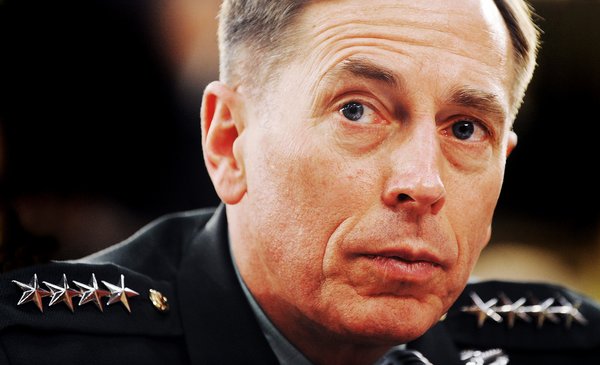Those threats are compounded by an America whose "resolve about its defense has become somewhat ambivalent," he added.
"Americans should not take the current international order for granted," Petraeus said at a House Armed Services Committee hearing. "It did not will itself into existence. We created it. Likewise, it is not naturally self-sustaining. We have sustained it. If we stop doing so, it will fray and, eventually, collapse."
Petraeus, former director of the CIA, spoke at a hearing about the "state of the world."
Many of Petraeus's remarks hinted at pushing back against statements and policies from President Trump, who had considered Petraeus as a candidate for his secretary of State.
In speaking about the threat from extremists, Petraeus stressed that the majority of Muslims who reject extremism are the "most important ally" in fighting the Islamic State in Iraq and Syria (ISIS) and al Qaeda.
His comments come amid continued backlash at Trump's executive order banning travel from seven Muslim-majority countries for 90 days, suspending all refugees for four months and halting Syrian refugees indefinitely.
Critics have called the order a Muslim ban and said it plays into extremists' narrative that the West is at war with Islam.
"We must also remember that Islamic extremists want to portray this fight as a clash of civilizations, with America at war against Islam," Petraeus said Wednesday. "We must not let them do that; indeed, we must be very sensitive to actions that might give them ammunition to use in such an effort."
Comment: Actually, it was Western thinkers who spread the idea of a "clash of civilizations," and it is people like Petraeus who have led the charge in numerous wars against Muslim people.
Petraeus also warned that adversaries such as Russian President Vladimir Putin are seeking to encourage American ambivalence about its defense and institutions such as NATO.
"President Putin, for instance, understands that, while conventional aggression may occasionally enable Russia to grab a bit of land on its periphery, the real center of gravity is the political will of the major democratic powers to defend Euro-Atlantic institutions like NATO and the EU," Petraeus said. "That is why Russia is tenaciously working to sow doubt about the legitimacy of these institutions and our entire democratic way of life."
Trump has said he wants to improve relations with Russia and has called NATO obsolete.
Former CIA Deputy Director John McLaughlin, who spoke at Wednesday's hearing alongside Petraeus, also warned about the difficulty in dealing with Russia.
"There is nothing at all wrong with aiming for an improved relationship with Russia, but the U.S. must be aware that Russia calculates its interests in a cold-eyed clinical way and Washington will have to be equally dispassionate in dealing with Putin," he said. "Historically, when Russia encounters weakness or hesitation, it demands more, then blames the opponent for escalation when the opponent resists — then calls for discussions, which it uses to consolidate its gains. Deals don't come easily.




"Americans should not take the current international order for granted, [] It did not will itself into existence. We created it. Likewise, it is not naturally self-sustaining. We have sustained it. If we stop doing so, it will fray and, eventually, collapse ."